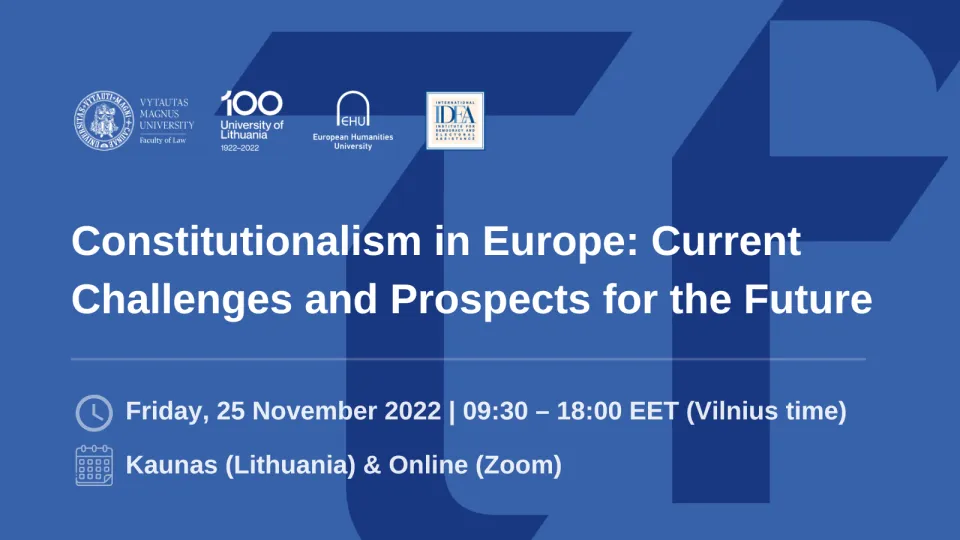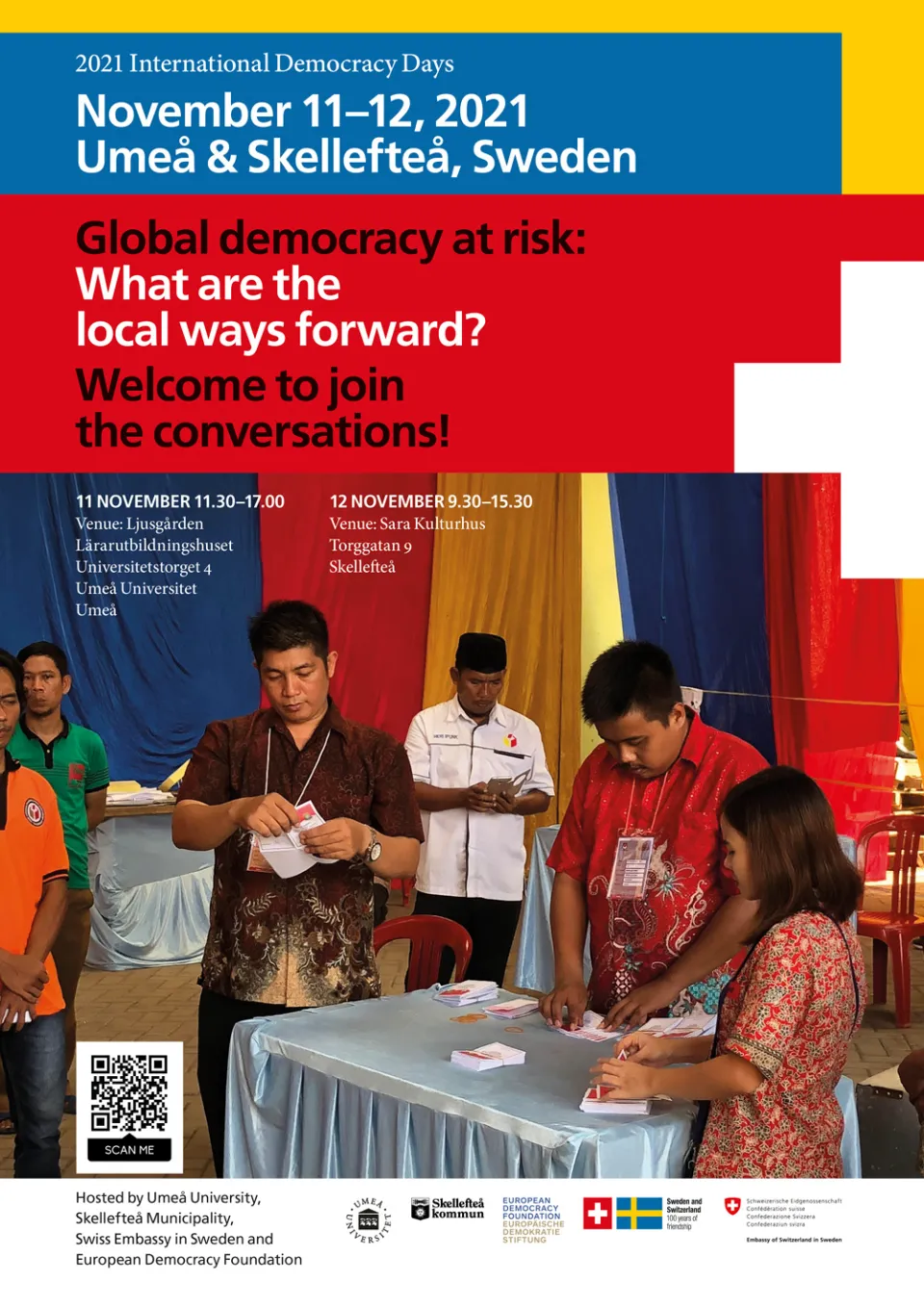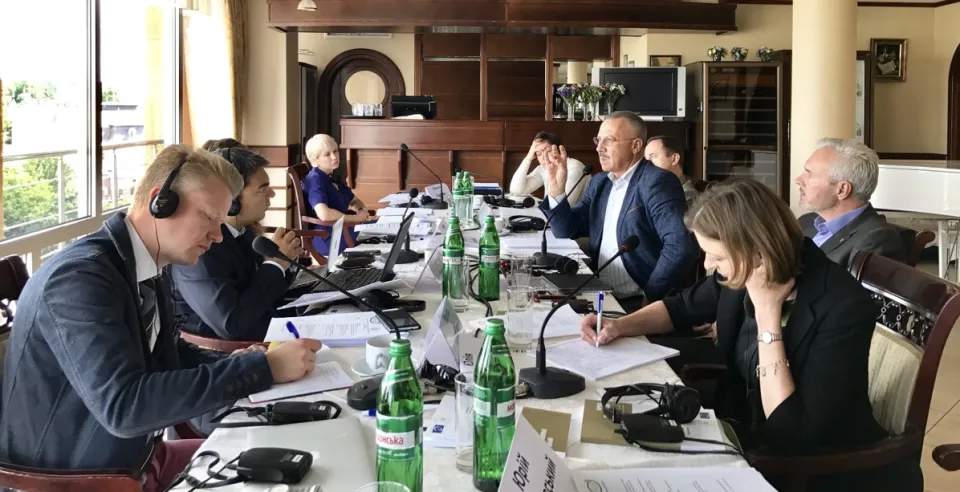Democratic Resilience: Does Institutional Design Matter?
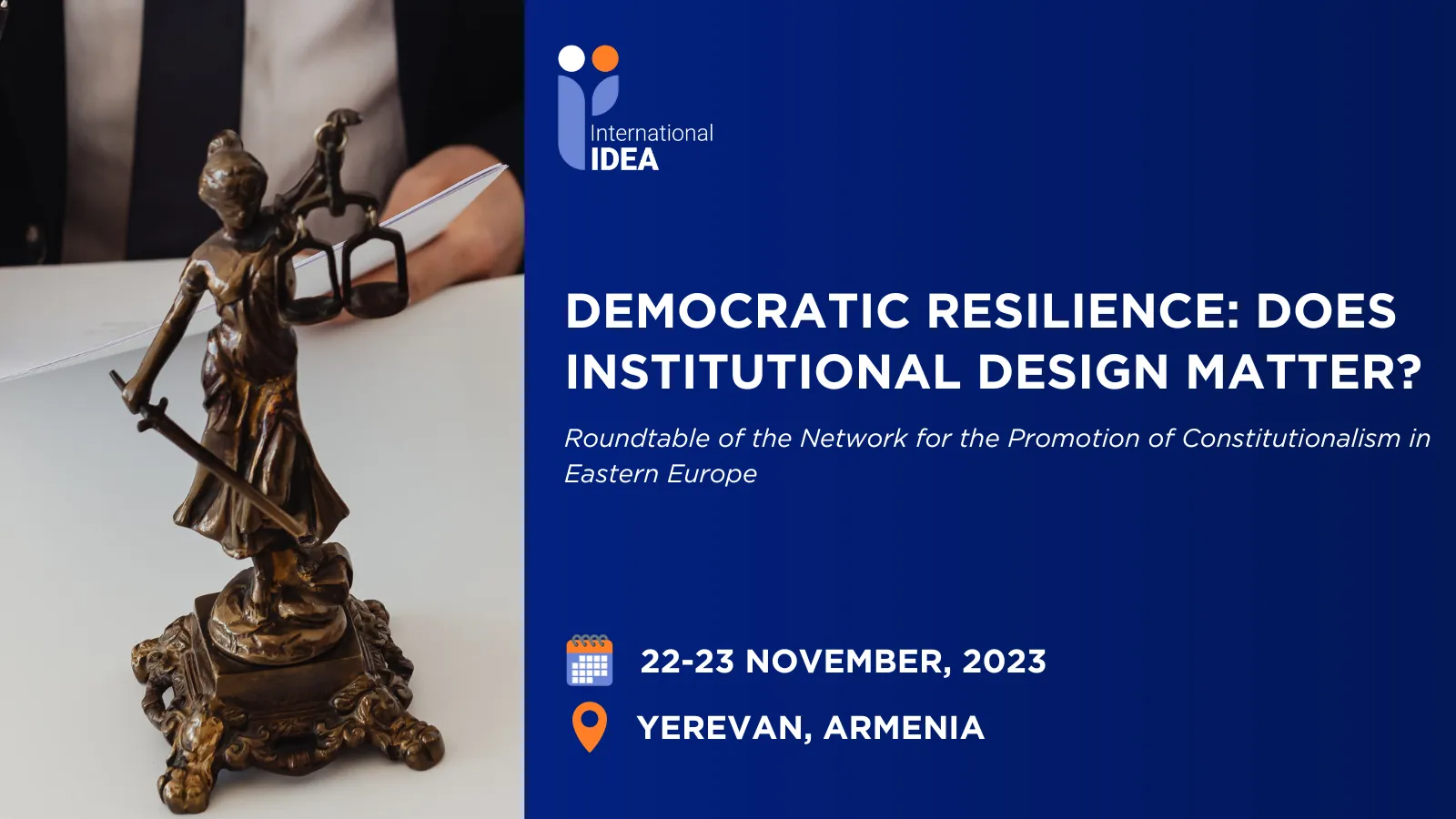
On the 22nd and 23rd of November 2023, the International Institute for Democracy and Electoral Assistance (International IDEA) in partnership with members of the Network for the Promotion of Constitutionalism in Eastern Europe is organizing a roundtable discussion 'Democratic Resilience: Does Institutional Design Matter?' in Yerevan, Armenia.
OBJECTIVE
The roundtable will serve to review the state of democratic checks and balances in the countries of the Eastern Partnership region and identify potential constitutional and institutional remedies for strengthening them. The aim of this initiative is to enable policy-makers, experts, and civil society actors to exchange views, distill lessons from global comparative experiences of democratic backsliding, and inform their work for fostering democratic resilience in their countries.
The discussion will be framed along the lines of International IDEA’s recent study Designing Resistance cataloging cases of democratic backsliding and identifying possible constitutional and legal remedies. The conference will be divided into thematic and country analysis sessions. Each of the sessions will follow a comparative analytical framework with a view to distill both unique and transferable insights into the origins, workings, and consequences of various constitutional instruments for preventing and protecting against democratic backsliding.
CONTEXT
Democratic backsliding, broadly taken to mean “state-led debilitation or elimination of any of the political institutions that sustain an existing democracy” (Bermeo 2016), has become a global phenomenon. According to the International IDEA 2022 Global State of Democracy Report: “between 2016 and 2021, the number of countries moving towards authoritarianism was more than double the number of those moving towards democracy. During that time, 27 countries experienced a downgrade in their regime classification, while only 13 improved. Moreover, 52 democracies are now eroding - defined as significant declines on at least one sub-attribute of democracy compared to only 12 a decade ago” (International IDEA 2022). Across all these cases, a majority is caused by government-driven weakening of safeguards for democracy and the rule of law.
Eastern Europe’s fledgling democracies have experienced varied trajectories of democratic progress and decline, with gains often being very fragile. After a decade of protracted reform-making, Armenia has made significant gains in the integrity of elections, reform of public administration, government transparency, and accountability, with vital reforms in the justice sector ongoing. As attested by the latest European Union enlargement reports, both Ukraine and Moldova have made impressive overall strides towards more democratic and accountable governance, improving legal and institutional frameworks in areas of parliamentary functions and independence of judiciary. While Georgia has been a successful past reformer, the continued political polarisation and lack of judicial independence, as well as the recent attempts of the ruling party to introduce a ‘foreign agents law’ targeting human rights defenders, points to persisting vulnerability to democratic backsliding.
In Central Europe, concerning cases of democratic backsliding over the past 5 years have been registered in Hungary, Poland, Serbia, and Slovenia, with only Slovenia having rebounded since 2021. The European Union has expressed increasing concern over democratic backsliding within its member states. These declines have created a deep and dangerous cleavage in the EU’s internal fundamental consensus on liberal democratic values and underscored the need to enhance the tools and practices to promptly address democratic backsliding within the EU. Against this backdrop, countries in Western Europe, such as the Netherlands and Sweden, have engaged in forward-looking exercises to analyze and reinforce their constitutional and legal frameworks against potential vulnerabilities to backsliding.
NETWORK FOR PROMOTION CONSTITUTIONALISM IN EASTERN EUROPE
The Network for the Promotion of Constitutionalism in Eastern Europe, initiated by International IDEA in partnership with constitutional design experts and practitioners from Armenia, Belarus, Georgia, Moldova, and Ukraine, will serve to enhance regional debates, learning, and partnerships on constitutional and institutional reforms in defense of constitutionalism and against democratic backsliding in the region. This Roundtable in Yerevan is expected to be the second annual gathering of the Network. In the follow-up to the Yerevan roundtable, the Network members will engage in various actions to disseminate the insights from the roundtable and contribute to further efforts in this regard.
AGENDA
Welcome and Introductions
Mr. Anahit Manasyan, Human Rights Defender of Armenia
Mr. Adam Bodnar, Senator, Poland; former Public Defender of Poland (online)
Mr. Sam van der Staak, Director for Europe, International IDEA
H.E. Amb. Jaap Frederiks, Ambassador of the Netherlands in the Republic of Armenia, Chair of the International IDEA Council of Member States
Ms. Maria Papamichail, Political Officer and Human Rights Focal Point of the Delegation of the European Union to Armenia
Session I: Framing the Issue: Understanding backsliding and the potential and limits of constitutional design
Moderator: Mr. Sumit Bisarya, Head of Constitution-Building, International IDEA
Speakers:
Mr. Thomas Markert, former Secretary of the Venice Commission of the Council of Europe
Ms. Madeleine Rogers, attorney, DPhil candidate in Law at the University of Oxford
Mr. Tom Ginsburg, Leo Spitz Distinguished Service Professor of International Law, Chicago School of Law
Mr. Armen Mazmanyan, Armenia, American University of Armenia
Session II: Country Analyses (I)
Moderator: Ms. Nana Kalandadze, Programme Manager, International IDEA
Speakers:
Mr. Davit Hakobyan, Lecturer in Law; member of the State Constitutional Commission of Armenia
Mr. George Papuashvili, Dean, Faculty of Law, Ilia State University, former Chair of the Constitutional Court of Georgia
Mr. Alexandru Tanase, former Chair of the Constitutional Court of Moldova and former Minister of Justice
Mr. Iurii Barabash, Vice-Rector, Yaroslav Mudryi National Law Academy of Ukraine; Chairman of the Scientific Advisory Board of the Constitutional Court of Ukraine (online)
Session III: Country Analyses (II)
Moderator: Mr. Alexandru Tanase, former Chair of the Constitutional Court of Moldova and former Minister of Justice
Speakers:
Mr. Armen Mazmanyan, American University of Armenia, member of the State Constitutional Commission of Armenia
Mr. George Chitidze, Ilia State University, Georgia
Mr. Rodica Secreriu, Chisinau State University, Moldova
Mr. Serhii Riznyk, Vice-Rector for Research, Teaching and International Cooperation, Lviv State University, Ukraine (online)
Mr. Aliaksandr Vashkevich, Former Justice of the Constitutional Court of Belarus, European Humanities University (Vilnius, Lithuania)
Session IV: Country Analyses (III)
Moderator: Ms. Yuliya Shypilova, Programme Officer, International IDEA
Speakers:
Ms. Lousineh Hakobyan, Europe Law Foundation, Armenia, former member of the State Constitutional Commission
Mr. George Chitidze, Ilia State University, Georgia
Ms. Yuliya Kyrychenko, Centre for Political and Legal Reforms, Kyiv, Ukraine
Session V: Fixing the Roof When the Sun is Shining
Mr. Sumit Bisarya, Head of Constitution Building, International IDEA
Closing Remarks
Ms. Nana Kalandadze, Programme Manager, International IDEA
Mr. Tom Ginsburg, Leo Spitz Distinguished Service Professor of International Law, Chicago School of Law
Mr. Vahe Grigoryan, Vice-President, Constitutional Court of Armenia
Hosted by
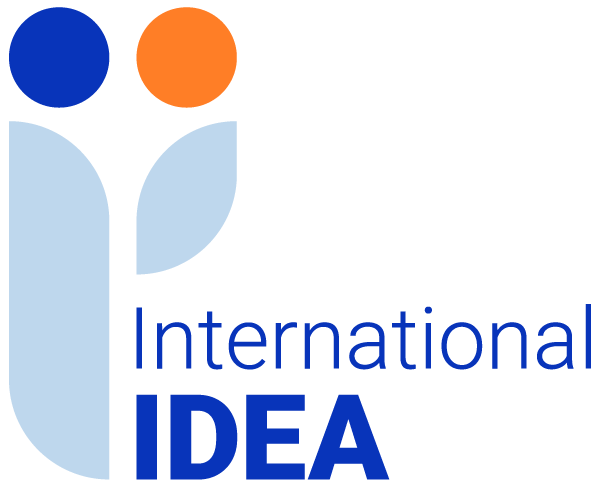
We advance democracy worldwide, as a universal human aspiration and an enabler of sustainable development, through support to the building, strengthening and safeguarding of democratic political institutions and processes at all levels.
